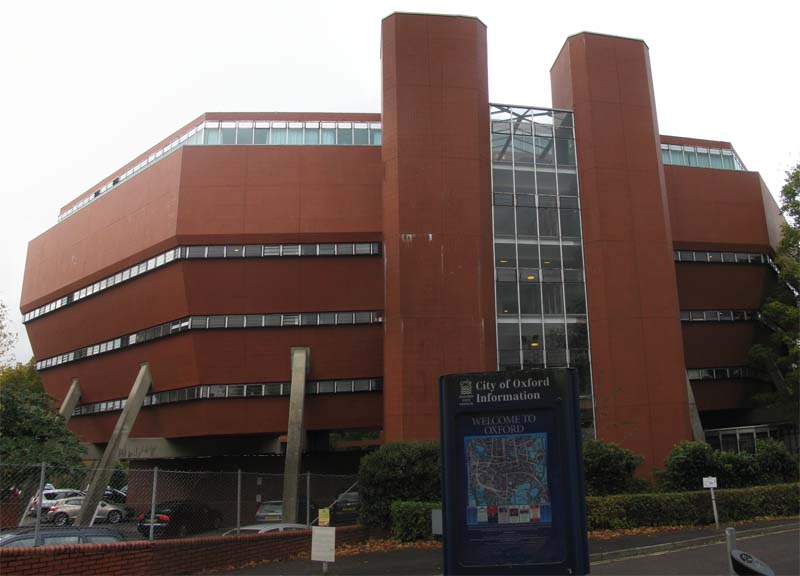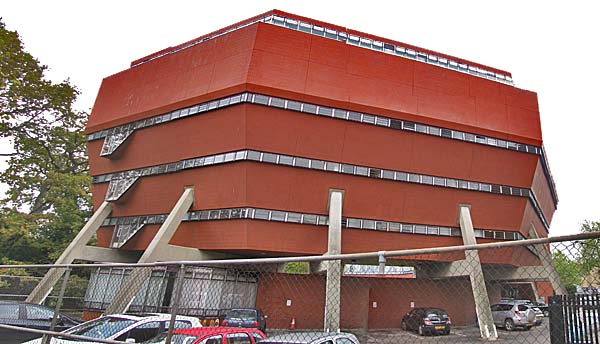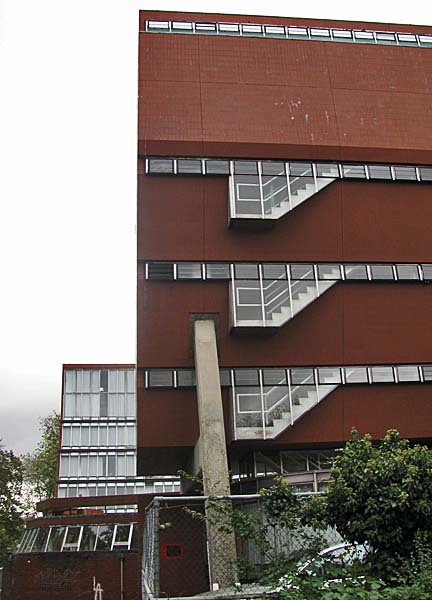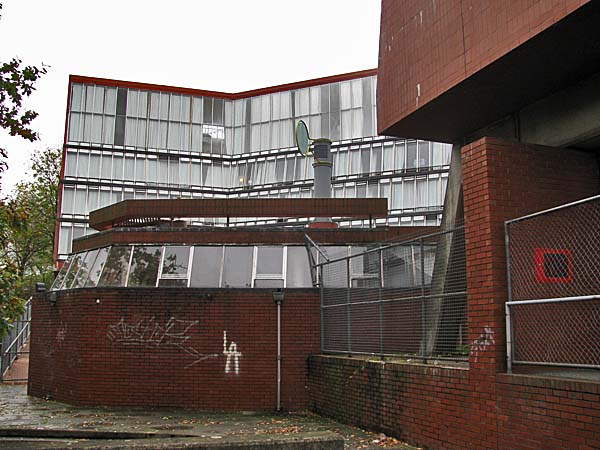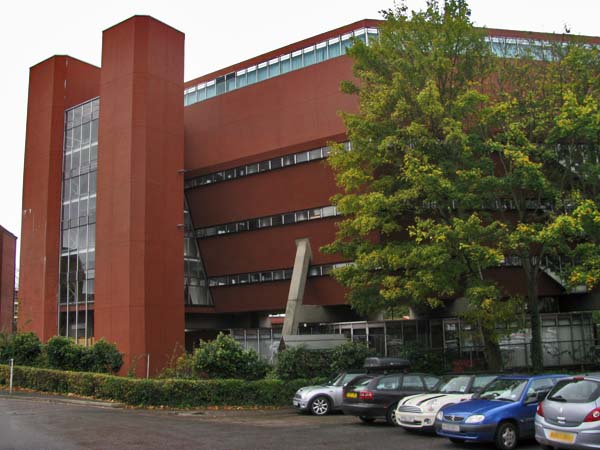|
Visitors who have arrived in
Oxford looking to see the "dreaming spires"
are in for a shock if they into the St.
Clement's Car Park to leave their car.
As they turn into the approach road they are
confronted by what appears to be a very red,
very large, alien space craft that has parked
itself beside the River Cherwell. This
is, in fact, The Florey Building, a student
residence for Queens College, Oxford, designed
by James Stirling, after whom the Royal
Institute of Architects named the famous
Stirling Prize for Architecture.
Apparently the origin of the building was a
wish by the then Provost of the college, Lord
Florey, for, "... the best building by
the best architect to attract the best
students and also research funding"
In an article for BBC Oxford, Alan
Berman says that Florey didn't want one that
was, "... boxy and dull but admired by
architects." At this point in
Stirling's career he wasn't seen as the
celebrity architect that Florey was hoping
for. He had however
completed two previous university commissions
for the Engineering Department in Leicester
and the History Faculty in Cambridge.
Both of these buildings had featured red tiles
and with the Florey they became known as
Stirling's "Red Trilogy". Berman says of
them that, "These three university
buildings designed in the decade 1958-1968
all used the same traditional red
industrial bricks and tiles and cheap
factory glazing systems. With their
sculptural and unusual forms they burst
onto the 1950's building scene in which so
much was minimal and banal as a result of
post-war austerity. They were seen as
exciting and dynamic and immediately
hailed by the profession, and Stirling
became a star among architects."
Florey championed Stirling's design
but against a great deal of local
opposition. "Members of Queens'
College generally considered the
experience a disaster, compounded by their
difficult relationship with the architect.
Lord Florey was a moderniser from
Australia who, minutes of meetings reveal,
pushed the College to appoint an architect
that others found arrogant and difficult
to deal with. Florey supported Stirling
and championed the design - but Florey
died unexpectedly in 1968 just as building
was getting under way, leaving Stirling's
opponents to manage the project.
.... All of this produced a
toxic mix - the unusual appearance, the
poor technical performance and a dislike
for the architect set people against the
building and against Stirling to such an
extent that senior academics in Oxford and
Cambridge wrote to all their influential
colleagues advising them not to engage
Stirling as their architect. As a
consequence Stirling built little in the
UK for almost 18 years - yet he won
commissions in Germany, became a professor
of Architecture at Yale and won prizes in
Japan
Whatever you may feel about the Florey it has
to be noted that along with the other members
of the Red Trilogy, it is now a listed
building. acknowledging what Berman describes
as, " ... their
extraordinary forward looking forms and
qualities and their experimental, ground
breaking nature. They are visited by
architects from all over the world."
|
